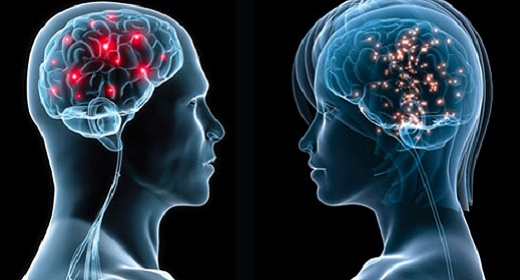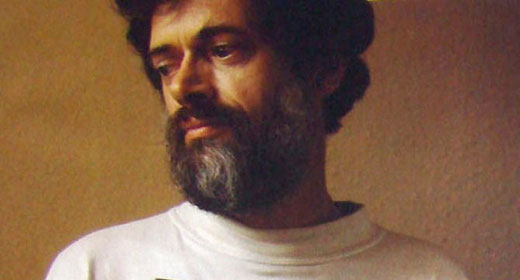by David R. Hawkins M.D., Ph.D: If we analyze the nature of force, it becomes readily apparent why it must always succumb to power…
this is in accordance with one of the basic laws of physics. Because force automatically creates counter-force, its effect is limited by definition. We could say that force is a movement. It goes from here to there (or tries to) against opposition. Power, on the other hand, stands still. It is like a standing field that does not move. Gravity itself, for instance, does not move against anything. Its power moves all objects within its field, but the gravity field itself does not move.
Power arises from meaning. It has to do with motive, and it has to do with principle. Power is always associated with that which supports the significance of life itself. It appeals to that in human nature which we call noble, in contrast to force, which appeals to that which we call crass. Power appeals to that which uplifts, dignifies, and ennobles. Force must always be justified, whereas power requires no justification. Force is associated with the partial, power with the whole.
Force is intrinsically incomplete and therefore has to constantly be fed energy. Power is total and complete in and of itself and requires nothing from outside of itself. It makes no demands; it has no needs. Because force has an insatiable appetite, it constantly consumes. Power, in contrast, energizes, gives forth, supplies, and supports.
Power gives life and energy. Force takes these away.
We notice that power is associated with compassion and makes us feel positively about ourselves. Force is associated with judgmentalism and tends to make us feel badly about ourselves.
Force always creates counter-force; its effect is to polarize rather than to unify. Polarization always implies conflict; its cost, therefore, is always high. Because force incites polarization, it inevitably produces a win/lose dichotomy; and because somebody always loses, enemies are always created. Constantly faced with enemies, force requires constant defense. Defensiveness is invariably costly, whether in the marketplace, politics, or international affairs.
In looking for the source of power, we have noted that it is associated with meaning and that this meaning has to do with the significance of life itself. Force is concrete, literal, and arguable. It requires proof and support. The sources of power, however, are beyond argument and are not subject to proof. The self-evident is not arguable. That health is more important than disease, that life is more important than death, that honor is preferable to dishonor, that faith and trust are preferable to doubt and cynicism, that the constructive is preferable to the destructive—are all self-evident statements not subject to proof. Ultimately, the only thing we can say about a source of power is that it just “is.”
Every civilization is characterized by native principles. If the principles of a civilization are noble, it succeeds; if they are selfish, it fails. As a term, “principles” may sound abstract, but the consequences of principle are quite concrete. If we examine principles, we will see that they reside in an invisible realm within consciousness itself. Although we can point out examples of honesty in the world, honesty itself as an organizing principle central to civilization is nowhere independently existent in the external world. True power, then, emanates from consciousness itself; what we see is a visible manifestation of the invisible.
Pride, nobility of purpose, sacrifice for quality of life—all such things are considered inspirational, giving life significance. But what actually inspires us in the physical world are things that symbolize concepts with powerful meanings for us. Such symbols realign our motives with abstract principles. A symbol can marshal great power because of the principle that already resides within our consciousness.
Meaning is so important that when life loses meaning, suicide commonly ensues. When life loses meaning, we first go into depression; when life becomes less meaningful, then we finally leave it. Force has transient goals; when those goals are reached, there remains the emptiness of meaninglessness. Power, on the other hand, motivates us endlessly. If our lives are dedicated, for instance, to enhancing the welfare of others and everyone we contact, our lives can never lose meaning. If the purpose of our life, on the other hand, is merely financial success, what happens after that has been attained? This is one of the primary etiologies or causes of depression in middle-aged men and women.
The disillusionment of emptiness comes from failing to align one’s life with the principles from which power emanates. A good illustration of this phenomenon can be seen in the lives of great musicians, composers, and conductors of our own times. How frequently they continue productive careers into their eighties and nineties, often having children and living vigorously until a ripe old age! Their lives have been dedicated to the creation and embodiment of beauty; beauty incorporates and expresses enormous power. We know clinically that alignment with beauty is associated with longevity and vigor. Because beauty is a function of creativity, such longevity is common in all creative occupations.
It is really only necessary to recognize that power is that which makes you go strong, while force makes you go weak. Love, compassion, and forgiveness, which may be mistakenly seen by some as submissive, are, in fact, profoundly empowering. Revenge, judgmentalism, and condemnation, on the other hand, inevitably make you go weak. Therefore, regardless of moral righteousness, it is a simple clinical fact that in the long run, the weak cannot prevail against the strong. That which is weak falls of its own accord.
Individuals of great power throughout human history have been those who have totally aligned themselves with powerful attractors. Again and again, they have stated that the power they manifested was not of themselves or of their own making. All attributed the source of the power to something greater than themselves.
All of the Great Teachers throughout the history of our species have merely taught one thing, over and over, in whatever language, at whatever time. All have said, simply: Give up weak attractors for strong attractors.










































